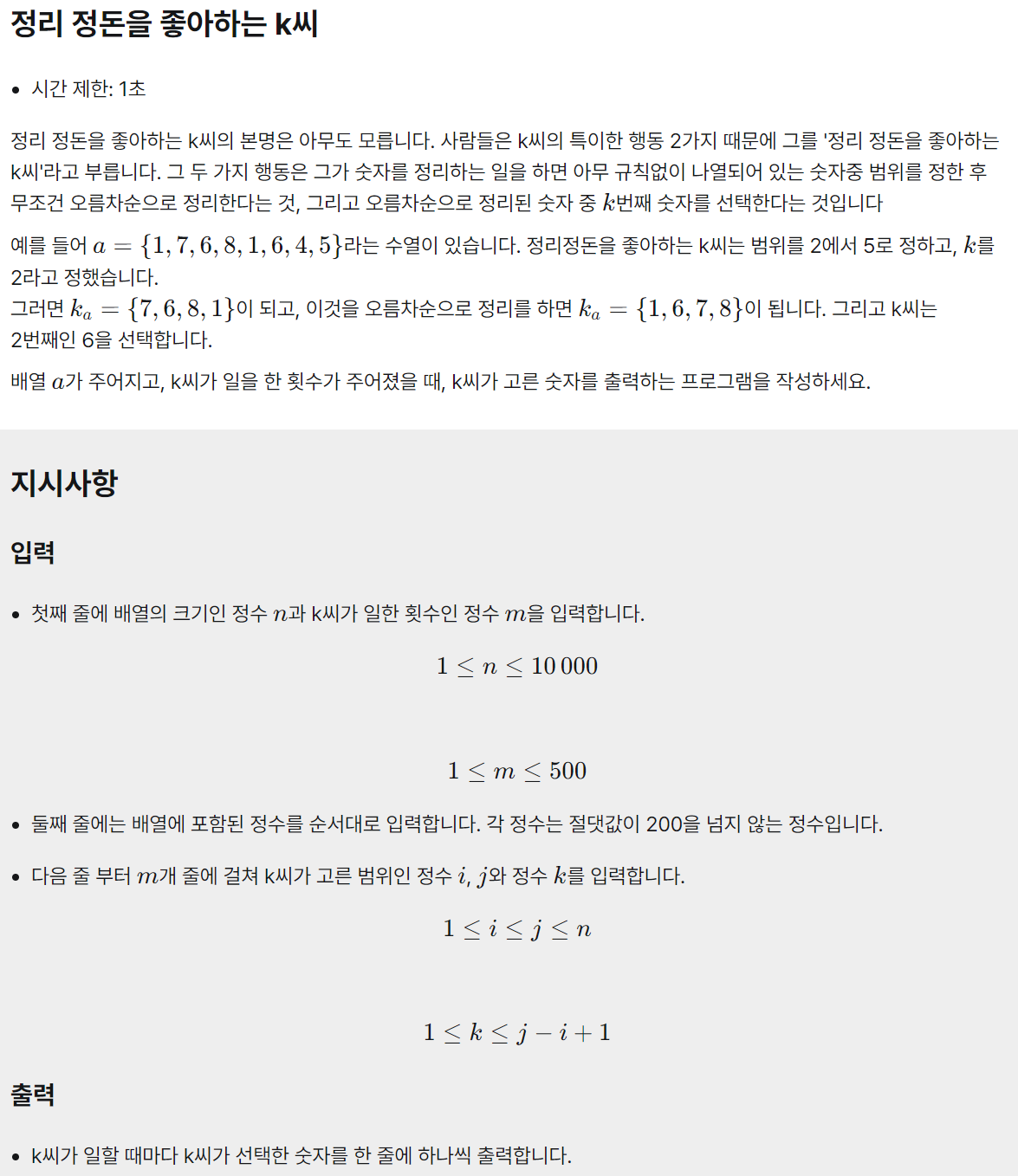문제


풀이
주어진 배열에서 l ~ r의 범위를 골라서 오름차순으로 정렬하고 idx번째에 위치한 수를 구하는 문제입니다.
N = 10000, M = 500이므로 브루트포스를 사용하여 M * N * logN 시간으로 해결할 수 있습니다.
저는 l ~ r 범위의 수들을 벡터에 넣어줬고, 벡터를 오름차순으로 정렬하여 idx번째 수를 출력하는 방식으로 해결했습니다.
코드
|
1
2
3
4
5
6
7
8
9
10
11
12
13
14
15
16
17
18
19
20
21
22
23
24
25
26
27
28
29
30
31
32
33
34
35
36
37
38
39
40
|
#include <iostream>
#include <vector>
#include <algorithm>
#define MAX 10001
using namespace std;
int list[MAX];
int N, M;
void func() {
int l, r, idx;
while (M--) {
cin >> l >> r >> idx;
vector<int> tmp;
for (int i = l; i <= r; i++) {
tmp.push_back(list[i]);
}
sort(tmp.begin(), tmp.end());
cout << tmp[idx - 1] << '\n';
tmp.clear();
}
}
void input() {
int x;
cin >> N >> M;
for (int i = 1; i <= N; i++) {
cin >> list[i];
}
}
int main() {
cin.tie(NULL); cout.tie(NULL);
ios::sync_with_stdio(false);
input();
func();
return 0;
}
|
cs |
'대회 > elice' 카테고리의 다른 글
| 엘리스 코드 챌린지 Day 6 빨간 선과 파란 선 (0) | 2024.07.23 |
|---|---|
| 엘리스 코드 챌린지 Day 5 수열 복원 (0) | 2024.07.22 |
| 엘리스 코드 챌린지 Day 4 트리 위의 게임 (0) | 2024.07.22 |
| 엘리스 코드 챌린지 Day 3 문자열 압축 해제 (4) | 2024.07.22 |
| 엘리스 코드 챌린지 Day 1 목표량 (0) | 2024.07.22 |

